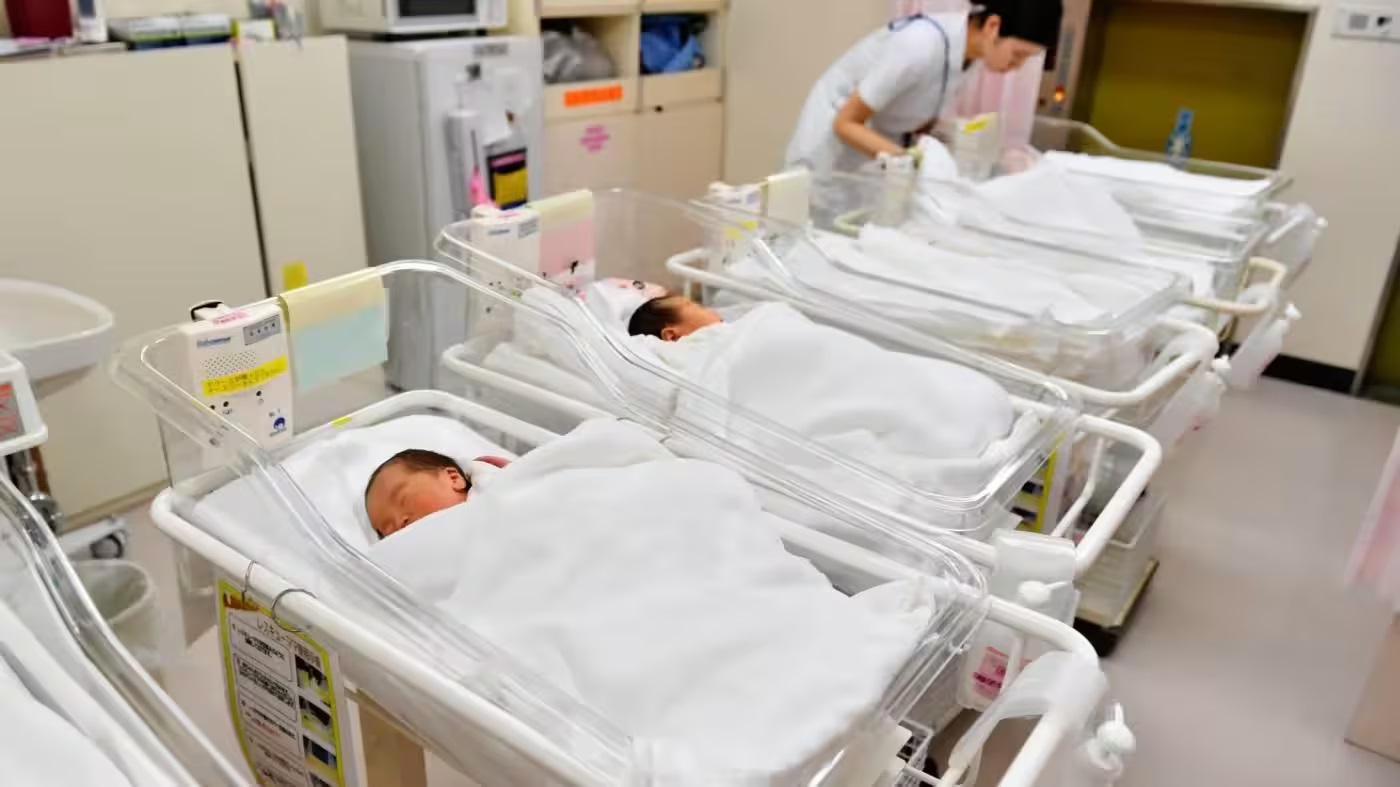Japan’s birthrate decline has taken on new urgency following the release of alarming government data showing that the number of births in 2024 dropped below 700,000 for the first time since over a century ago.
The Guardian reports that the Ministry of Health revealed that only 686,061 babies were born in Japan last year, representing a 5.7% decrease from 2023.
This marks the lowest number of births since official data collection began in 1899.
These figures do not include births to non-Japanese residents.
The country’s fertility rate, the average number of children a woman is expected to have during her lifetime, also hit a new historic low, falling to 1.15 from 1.20 in the previous year.
This is significantly lower than the 2.1 rate required to maintain a stable population.
At the same time, the number of deaths in 2024 increased by 1.9% to 1.6 million, further widening the demographic gap.
Both the number of births and the fertility rate have now declined for nine consecutive years.
While Japan did see a slight increase in marriages, the broader pattern of demographic decline remains firmly in place.
The marriages are —often linked to birth trends in a society where children are usually born to married couples.
The number of marriages rose to 485,063 in 2024, up by 10,322 from the previous year.
Still, this comes after the total dropped below half a million for the first time just two years ago, and the long-term downward trend that began in the 1970s remains unchanged.
Japan’s birthrate has been on a steady decline since the end of its second baby boom in 1973.
It dropped below one million births in 2016 and fell under 800,000 by 2022.
The 2024 figure is just a quarter of the country’s post-war peak of 2.7 million births in 1949.
The pace of the decline is particularly troubling for policymakers.
According to the Kyodo news agency, the number of annual births has already dropped into the 680,000 range.
This came 15 years earlier than projected by the National Institute of Population and Social Security Research.
If current demographic trends continue, Japan’s population, currently estimated at around 124 million, is expected to shrink to 87 million by the year 2070.
At that point, 40% of the population will be aged 65 or older.
It will supposedly create serious challenges for the country’s workforce, economy, and national security.
These demographic pressures are especially concerning as Japan moves to increase its military capabilities.
They come amid rising tensions with China and North Korea.
Prime Minister Shigeru Ishiba has called the nation’s population crisis a “silent emergency.”
In response, his administration recently announced new policies aimed at encouraging couples to have more children.
These include:
- expanded child allowances,
- free high school education, and,
- a provision allowing both parents to take paid parental leave simultaneously, with compensation equal to their full take-home pay.
Ishiba’s predecessor, Fumio Kishida, had also raised alarms.
He warned that the country was approaching a critical point where it might no longer be able to “function as a society” if the demographic decline continued unchecked.
He described the situation as a “now or never” moment for action.
Despite these policy interventions, efforts by successive Japanese governments to alleviate financial and social barriers for families have yielded minimal impact.
Many people are still marrying later in life, a trend that generally leads to fewer children.
Critics argue that government initiatives have largely centered on helping married couples.
They say the government has failed to address the deeper issues deterring young, single individuals from forming families in the first place.
Many younger Japanese cite unstable job prospects, economic uncertainty, and a rigid corporate culture as debilitating factors.
They claim a rigid corporate culture makes it especially hard for women to balance work and motherhood as major deterrents to marriage and parenthood.
A 2023 survey by the Nippon Foundation revealed that only 16.5% of Japanese aged 17 to 19 believed they would eventually get married, even though many expressed a desire to do so.
This highlights a growing gap between aspiration and reality.
It supposedly underscores the societal and economic reforms needed to reverse the country’s population decline.



